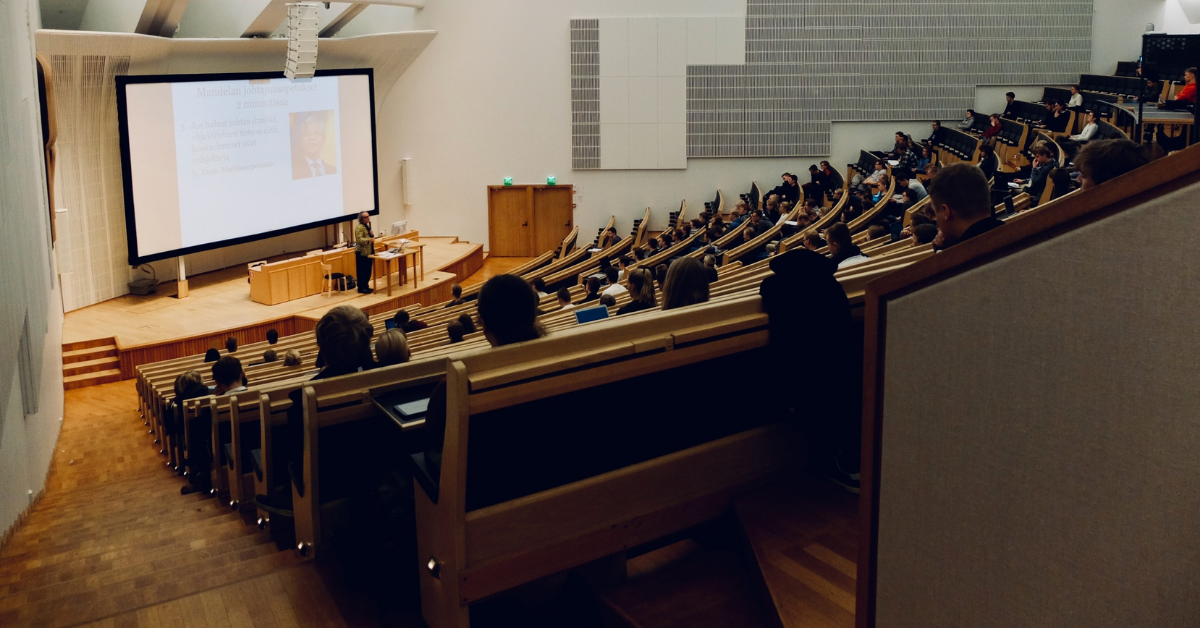Event
Teaching Development Studies: What, why and how? Part II.
 Photo: Unsplash / Dom Fou
Photo: Unsplash / Dom Fou
Date: October 14, 2022 - October 14, 2022
Are you a teacher or director of studies within development studies in Sweden? Welcome to this workshop about how to teach development studies. The event is a second follow up to a popular workshop held last year aimed at exchanging experiences and practices and discuss common challenges and opportunities.
Development studies is a broad field, taught in various departments across universities. Despite the broadness, there are many commonalities and much to be learnt from each other. How can we generate learning and greater collaboration across disciplines and institutions? Take this opportunity to share your experiences, connect and learn from others. There have not been any opportunities for people involved in development studies education across Sweden to meet and to learn across our different institutions. We also are aware that we all have busy schedules that make it hard to carve time to exchange on common questions and challenges. So with this workshop, we hope to make the best of a short time, pull together our efforts, and collectively grow our pedagogies through an exchange around challenges and opportunities in teaching development studies.
This coming workshop will follow up with new questions and challenges that emerged from the first workshop, covering joint issues we can share experience about. In hearing each other’s thoughts – and solutions – we are hoping to discuss and learn about some of the opportunities that are present before us.
The workshop is held on Zoom. Register below.
Topics
When registering, all participants get the opportunity to choose which topic they would like to discuss at the workshop (1-2 topics in total).
Topic 1: How do we delineate the scope of development studies education?
It has become more and more challenging to scope development studies in our teaching – eg clear in scoping the boundaries of course content and theses or other assignment topics. With the Sustainable Development Goals, development is clearly no longer the exclusive purview of aid and international development cooperation. Our students find jobs in increasingly varied organisations – with a private and for-profit sector taking on a larger role as employer. What does this challenge look like, and is tackled by, development studies teachers within the SweDev network? What are the pros and cons of a more and less narrow definition of development studies in education? How does this translate into the topics and skills we do and do not teach?
Topic 2: How do we deal with subjectivity-objectivity and activist approaches in development education?
This challenge refers to normative biases in our teaching activities. In development studies, both in research and educational activities, we frequently discuss global, national, and local situations of power structures, popular resistance, and social and environmental injustices and inequalities, themes that can be difficult to relate objectively or neutrally to. How do we handle the dilemma of objectivity-subjectivity in our teacher role, both regarding our own positions and when dealing with activism among students?
Topic 3: How do we qualify and deal with the shrinking resources available to students and teachers in development education and the labour market?
Over the years we have faced shrinking resources to build up study programs/environments in the field of development studies and related fields. This includes the Linnaeus/Palme teacher/students exchange programs, the minor field studies program and the internship program that provided an opportunity for students to get their first foot into the labour market. We can also note a shrinking of the support to Civil society organisations in the area as well as a cut down on staff on Sida-missions, which narrows down the potential future labour market. In addition, the competition for research funds in the field has made it more challenging to finance development research, which makes it more difficult to have research-based teaching. What experiences/strategies have/can be made to meet this challenge(s)? What alternative sources of funding can be available? What implication does it have for the structure of our programs? What competencies should we train the students for?
Topic 4: What skills should we teach to the students?
This will be incorporated into the other topics.
We look forward to seeing you!
Best regards,
Jonas Ewald, Muriel Côte and Rickard Lalander, SweDev Education Working group
